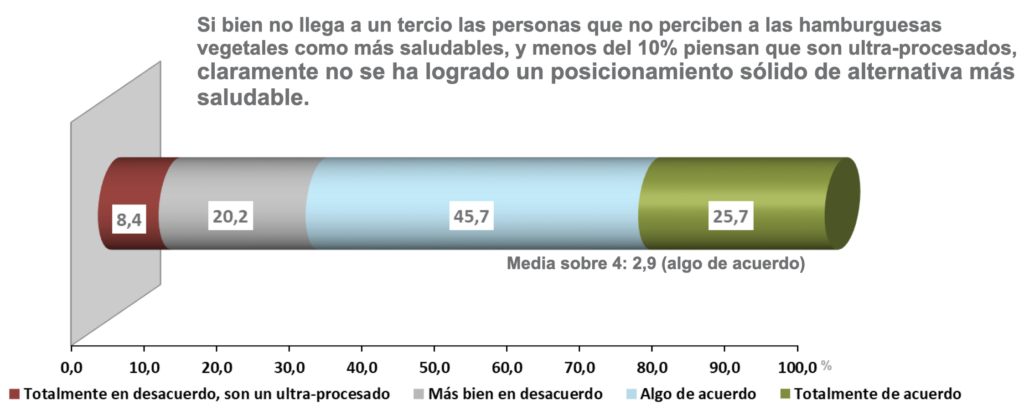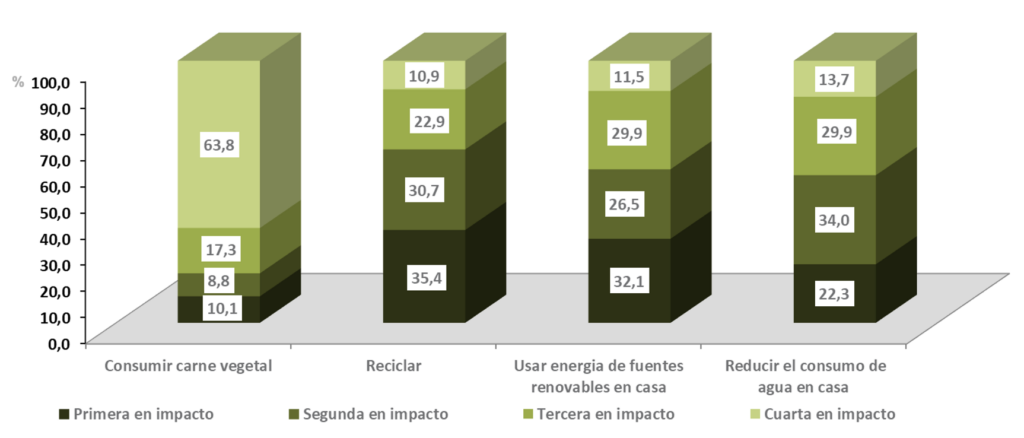
A majority of consumers in Spain are open to eating more meat analogues if they offer nutritional and taste parity alongside a lower environmental impact.
In Spain, over half of consumers (56%) have eaten plant-based meat in the last six months, and another 8% are considering trying them. But an even higher share of people would consume these products if they presented key benefits, according to a new survey.
Conducted by Spanish meat analogue leader Heura, the 1,000-person poll sought to examine the perspectives of the country’s residents on the nutritional, taste and environmental credentials of plant-based meat.
It found that consumption of these products skews higher in men, those aged 25-34, and people in the northeast. There was also a significant difference in socioeconomic acceptability, with medium- to high-earners more likely to eat plant-based meat.
But of those who haven’t consumed these products in the last six months, it’s people in the northwest of Spain and the age bracket of 35-54 who are most interested in trying plant-based meat in the short term.
To sway these consumers and take plant-based meat intake to an even higher level, companies need to meet their taste and health requirements while convincing them of the environmental benefits.
UPFs not a barrier, but consumers still unsure about nutrition

Spain is among Europe’s largest meat consumers and has one of the highest per-capita meat consumption rates globally. Based on data from the UN FAO, the country’s average meat intake per person is five times higher than what’s recommended by the WHO.
But Heura’s survey shows that Spaniards are open to plant-based meats, provided they meet their needs. It underscored the importance of taste and texture when it comes to meat analogues – 85% of consumers say they’d eat these products if they delivered the same sensory experience as their conventional counterparts.
This is particularly important to the 8% of people considering eating more plant-based meat in the near term – of these, 98% of people would be convinced to try vegan analogues if they matched animal proteins on taste. And this would persuade even those currently disinterested in these products, 65% of whom would be open to giving them a shot.
Heura, which saw sales jump by 22% last year (reaching €38.3M), says it has the highest repetition rate on the market, and claims that neurophysiological studies have found that its vegan burgers perform on par or better than conventional beef.
Another major concern surrounding plant-based meats is the health aspect. Red meat has been associated with increased risk of heart disease, cancer, type 2 diabetes, and other conditions, but the (often misleading) narrative around ultra-processing has left many questioning the nutritional value of plant-based meats.
However, only 8% of Spaniards believe that the ultra-processed nature of vegan burgers means they’re not healthier than animal-derived meat. Nearly three-quarters (71%) feel plant-based burgers are better for human health, but the poll also uncovered consumer uncertainty in this regard – only 26% of people strongly agreed with this statement.
Unawareness about plant-based meat’s planetary benefits

People in Spain remain largely unaware of the environmental potential of plant-based meat. Asked to rank four measures based on their positive planetary impacts, a majority (64%) ranked replacing meat with plant proteins as the least effective action, behind recycling, using renewable energy at home, and reducing water consumption.
Two-thirds (66%) of Spaniards found recycling to be the most effective action to combat climate change, despite the fact that the country’s recycling rates are lower than the EU average. In contrast, only 19% of respondents placed plant-based meat consumption in their top two climate actions.
However, recycling has been found to reduce an average of 5-9% of greenhouse gas emissions, much lower than the 75-90% reduction a plant-based diet can bring, according to the FAO. Independent research has also shown that vegan diets can reduce emissions and water pollution by 75%, while replacing 50% of animal proteins with plant-based analogues can cut agricultural emissions by 31%.
Heura – which closed a €40M Series B funding round earlier this year – says it has also reduced its own climate footprint by 23% per kg of product between 2021 and 2023, while its vegan beef emits 94% fewer greenhouse gases than conventional beef.
But when presented with a plant-based meat option that tastes the same, has a better nutritional value, and has a lower environmental impact, 86% of consumers would be willing to consume it. This is actually twice as high as the willingness to try a vegan burger with such attributes, suggesting that expanding the category is no longer limited to burgers.
“We are solving these challenges in a way that goes beyond what the industry is doing. With cutting-edge technology and new scientific approaches, we create foods that have the same textures and flavours as meat, but are better for your health and the planet,” said Heura co-founder and CEO Marc Coloma.
“We want to satisfy those who are looking for complete and sustainable options, while contributing to the wellbeing of everyone, from society and the planet to animals,” he added. “We don’t make alternatives, we make successors.”
The post 86% of Spaniards Would Eat More Plant-Based Meat If They Deliver on Taste, Health & Environmental Benefits appeared first on Green Queen.
This post was originally published on Green Queen.